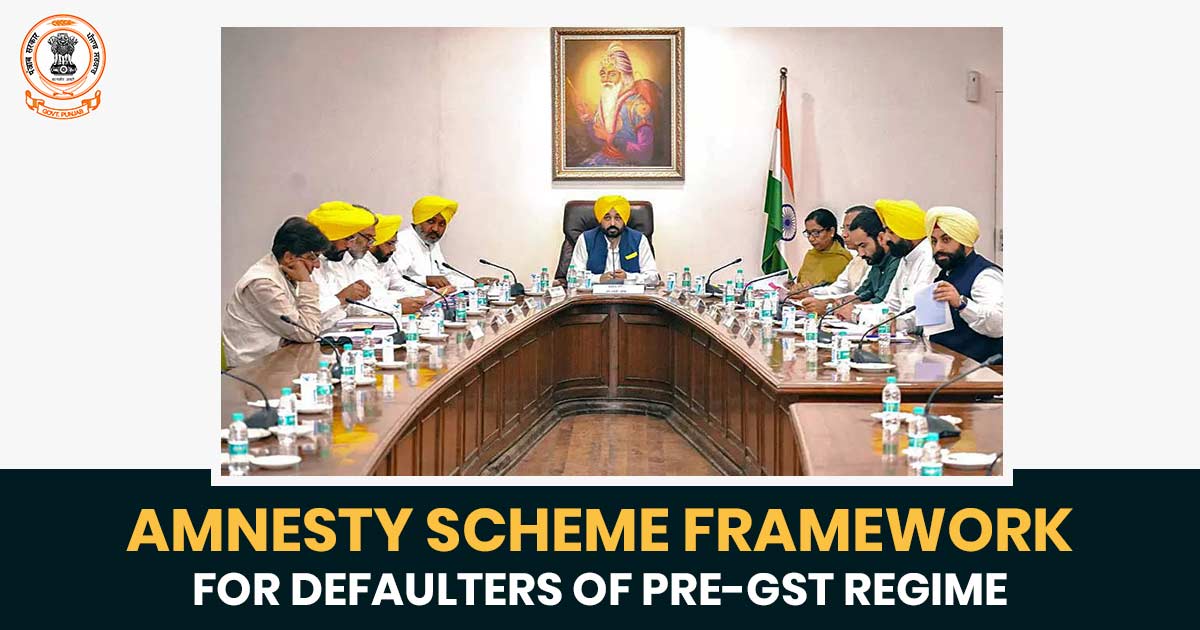
The framework for the amnesty program for one-time settlement of tax defaults committed in Punjab in the pre-Goods and Services Tax (GST) system has been approved by a subcommittee of the Punjab Cabinet.
The government is prepared to introduce a one-time settlement (OTS) program aimed at exceeding 44,000 people and enterprises who have fallen behind on different state taxes, including Value Added Tax (VAT) and Central Sales Tax. The government intends to use this program to settle outstanding debts and reclaim taxes from defaulters.
Read Also: What is Amnesty Scheme for GST Returns Non & NIL Filers?
About 27,000 defaulters out of the total owe relatively little capital, and the government plans to forgive their debt. With an emphasis on recovering taxes from them, persons with significant tax obligations will be the target of attention.
Most of the defaulters do not pay taxes under the of 2005, accounting for 21,734 defaulters with outstanding amounts totalling Rs 11,810.34 crore, along with tax, interest, and penalties. The following influential group comprises defaulters under the Central Sales Tax Act, with 19,026 individuals or businesses owing Rs 2,573.86 crore.
Important: Punjab Govt Introduces New SIPUs and GST Tool for Defaulters
Additional defaulters come beneath the Punjab Infrastructure (Development and Regulation) Act, Punjab General Sales Tax Act, PVAT Act, and Punjab Entertainment Tax Act, in collective amounting to roughly 44,000 defaulters and Rs 15,000 crore in unpaid taxes.
Since the GST system was implemented in 2017, several disputes have remained unsettled because the majority of these taxes were included in GST. Notably, the amount of unpaid taxes accounted for by government procurement organizations amounts to almost Rs 5,000 crore.
Recommended: GST Cir 07/2023: New Amnesty Scheme for GSTR-9/9C Non-filers
A Cabinet subcommittee has been established to develop the OTS policy. It is chaired by Finance Minister Harpal Cheema and includes Minister of Education Harjot Bains and Sports Minister Gurmeet Singh Meet Hayer.
The policy’s general structure, which aims to recover higher-value sums while concurrently forgiving small dues from a greater proportion of defaulters to simplify the tax system, has been approved by the committee. The final draft is being developed and will likely be submitted for approval to the Cabinet soon.